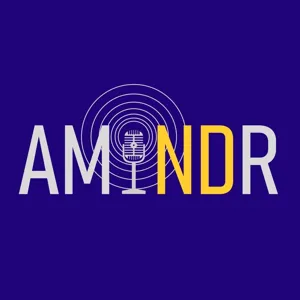Zdrowie psychiczne kobiet w ciąży i w połogu - dr n. med. Anita Sikora - Szubert, Michalina Mruczyk

Explore " in-vitro" with insightful episodes like "Zdrowie psychiczne kobiet w ciąży i w połogu - dr n. med. Anita Sikora - Szubert, Michalina Mruczyk", "A story of grief and motherhood with Tarah Schwartz Ep. 102", "Treatment Development in Alzheimer's Disease-February 2020- Part 1", "GENERAL MEDICINE: Single Embryo Transfer: Just as High Live Birth Rates as Double Transfer, But Without Risks" and "GENERAL MEDICINE: Ovarian Stimulation Does Not Affect Fetal Birth Weight" from podcasts like ""Strefa Psyche Uniwersytetu SWPS", "Women Don't Do That (WDDT)", "AMiNDR: A Month in Neurodegenerative Disease Research", "Audio Medica News - Medical News Interviews" and "Audio Medica News - Medical News Interviews"" and more!


This week’s guest is Tarah Schwartz. Tarah and host Stephanie discuss Tarah’s memoir on her difficult path to motherhood, Can’t Help Falling, a long road to motherhood. We dive into the topics of motherhood, grief, misscarrage, in vitro fertilization, adoption, and resilience. We also discuss her career path and transition out of television. Many of us will see ourselves in Tarah’s story of grief and immense challenges. You WILL be inspired by the barriers she has faced and overcame. There are so many lessons from Tarah that we can apply to our own lives. So dive in and take a listen!
More about Tarah:
Tarah spent more than two decades as a reporter and news anchor for CTV Television. She has interviewed hundreds of people, hosted multiple events and moderated panels of all kinds. Tarah has won four Canadian journalism awards. She has been named a woman of influence by Na’amat Canada. She is currently the Director of Communications and Marketing at the MUHC Foundation. Tarah is also a published author. Her first book, a memoir on her difficult path to motherhood, was release in April 2022 and is called Can’t Help Falling, a long road to motherhood. She lives in Quebec.
Mentioned in this episode:
Book: Can’t Help Falling: A Long Road To Motherhood by Tarah Schwartz
What miscarriage Is *actually* like with mom and communications’ professional Laura Payton Ep. 55
Find Tarah online:
Podcast recommendation: The Trevor Noah Podcast
Book recommendation: The power of now by Eckhart Tolle
How to find WOMENdontDOthat:
Interested in sponsorship? Contact us at hello@womendontdothat.com
Produced by: Stephanie Mitton

To receive the list of papers covered (with time-stamps), please subscribe to our mailing list. You can do so by filling this form:
--------> https://forms.gle/CVVbznAFM8pamdgk6 -------
or by sending us an email at
---------> amindrpodcast@gmail.com
-----------------------------------------------------------------------
List of sections in this episode:
In the next episode (part 2), you will hear about pre-clinical testing, which involves papers where at least one experiment was conducted on animals.
-----------------------------------------------------------------------
This episode was curated and produced by a group of volunteers. As we work on producing full-length episodes on ALL the publications from June 2020, we would appreciate your feedback so we can better cater to your needs.
You can fill our feedback form here
----------> https://forms.gle/5aq2JyrT6g4P1m8v6
You can also share your thoughts and suggestions by contacting us:
-----------------------------------------------------------------------
Our music is from "Journey of a Neurotransmitter" by musician and fellow neuroscientist Anusha Kamesh; you can find the original piece and her other music on soundcloud under Anusha Kamesh or on her YouTube channel, AKMusic
https://www.youtube.com/channel/UCMH7chrAdtCUZuGia16FR4w
-----------------------------------------------------------------------
If you are interested in joining the team, send us your CV by email. We are specifically looking for help with abstract summary and podcast editing. However, if you are interested in helping in other ways, don't hesitate to apply anyways.
-----------------------------------------------------------------------
*About AMiNDR: *
Learn more about this project and the team behind it by listening to our first episode: "Welcome to AMiNDR!"





Stay up to date
For any inquiries, please email us at hello@podcastworld.io